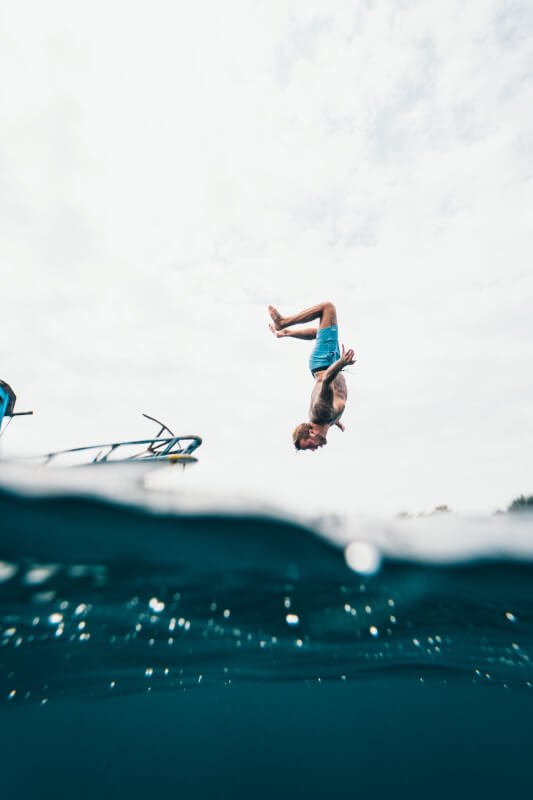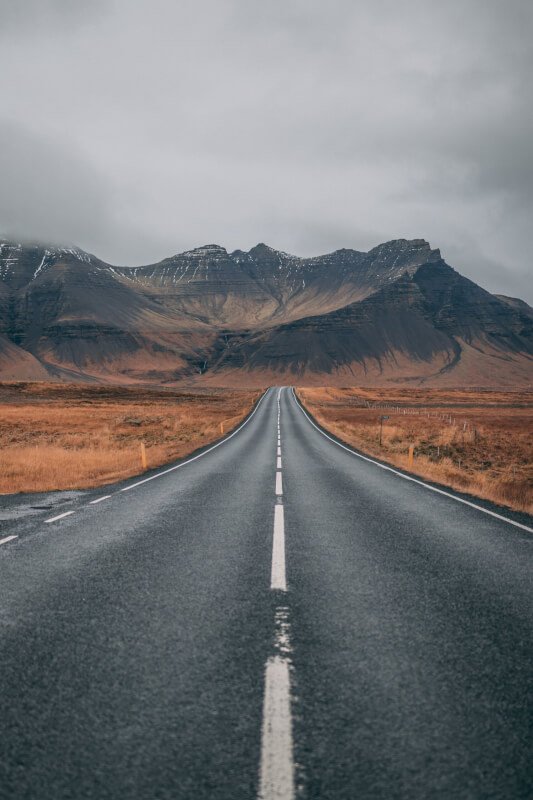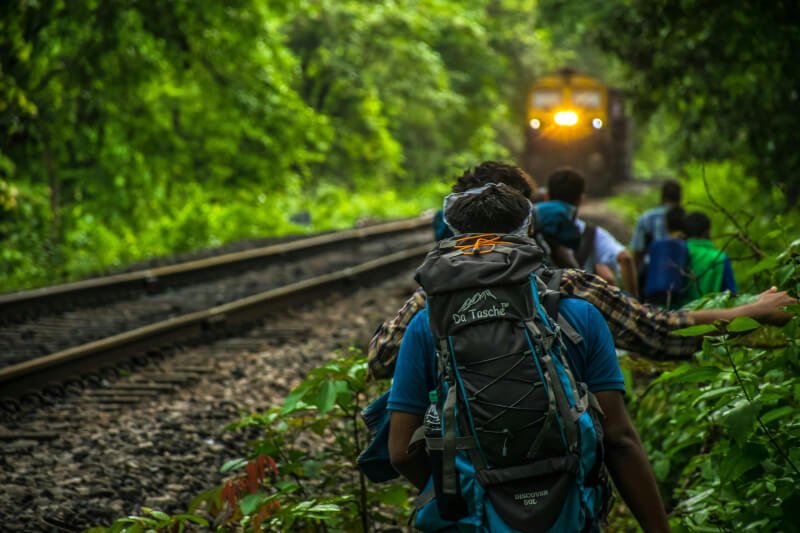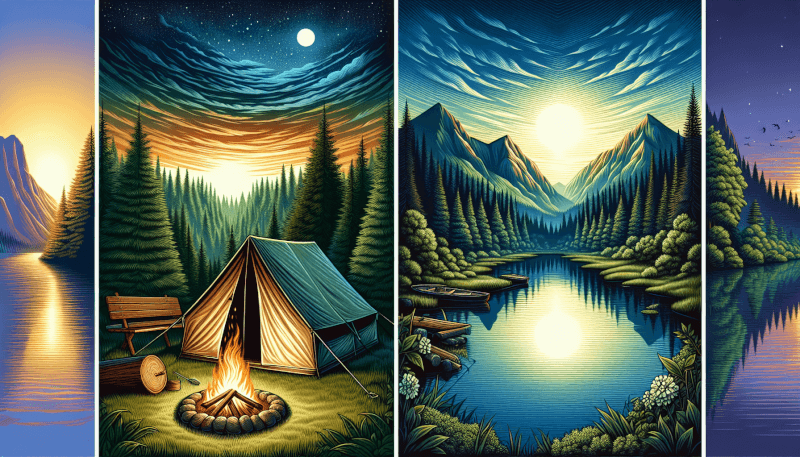Imagine escaping from the noise and chaos of everyday life to immerse yourself in the tranquil embrace of nature. Picture yourself sitting around a crackling campfire, sharing stories and laughter with friends or family, as the stars twinkle above. In our fast-paced world, camping offers a unique opportunity to reconnect with the beauty of the outdoors and create lasting memories. Whether you’re an experienced camper or new to this adventure, let us take you on a journey through camping adventure stories that celebrate the splendor of nature and inspire a deep appreciation for the world around us. Step into the serene wilderness and let the magic of camping unfold.

Choosing the Right Camping Gear
Researching and selecting a suitable tent
When it comes to camping, one of the most important decisions you will make is choosing the right tent. Your tent will be your home away from home in the great outdoors, so it’s essential to pick one that suits your needs. Consider factors like the number of people you’ll be camping with, the weather conditions you’ll be facing, and the level of comfort you desire. Research different types of tents, read customer reviews, and compare features to find the perfect fit for your camping adventures.
Deciding on the right sleeping bags and pads
A good night’s sleep is crucial when camping, and choosing the right sleeping bags and pads can greatly enhance your comfort level. Look for sleeping bags that are suitable for the temperatures you expect to encounter during your trip. Consider factors like insulation, size, and weight. Additionally, investing in high-quality sleeping pads or air mattresses can make a significant difference in your sleep quality and overall camping experience. Test out different options, read reviews, and consider your budget before making a decision.
Choosing appropriate cooking equipment
The joy of camping often involves cooking and enjoying delicious meals in the great outdoors. When choosing cooking equipment, consider the type of camping you’ll be doing and the meals you plan to prepare. For car camping, a portable stove or grill may be suitable, while backpacking trips might require lightweight and compact cooking gear. Don’t forget to pack essentials like pots, pans, utensils, and a cooler to store perishable food items. Research different cooking equipment options and choose ones that fit your needs and preferences.
Packing essential items for safety and comfort
To ensure a safe and comfortable camping trip, it’s important to pack the essential items. Start by creating a checklist of must-have items such as a first aid kit, flashlight, extra batteries, a compass or navigation device, insect repellent, sunscreen, and a multi-tool or Swiss Army knife. Depending on the location and duration of your trip, additional items like a map, fire starter, extra clothing layers, and a portable water filter may also be necessary. Take the time to pack and organize your gear in a way that allows for easy access when needed.
Finding the Perfect Campsite
Researching different campgrounds
Finding the perfect campsite requires thorough research. Start by considering the location and proximity to your home or desired destination. Look for campgrounds that offer the amenities you desire, such as running water, showers, electricity, and picnic tables. Reading reviews and checking ratings from previous campers can provide valuable insights into the overall campground experience. Consider factors like campground regulations, pet policies, and any specific rules that may apply to your planned activities.
Considering the amenities available
When choosing a campsite, the amenities available can greatly impact your camping experience. While some campers prefer a more rustic and minimalistic approach, others may prefer campgrounds with amenities like flush toilets, hot showers, and even Wi-Fi. Consider what amenities are important to you and your fellow campers. If you’re traveling with children, look for campgrounds that offer playgrounds or recreational facilities. For those who enjoy fishing or boating, campsites near lakes or rivers may be desirable. Take the time to research the amenities each campground offers and choose one that suits your needs and preferences.
Exploring campsites off the beaten path
For those seeking a more adventurous and secluded camping experience, exploring campsites off the beaten path can be a rewarding option. These campsites often provide a more immersive experience in nature, away from crowds and busy campgrounds. Look for national forests, state parks, or wilderness areas that offer backcountry camping. Keep in mind that these types of campsites may have limited amenities or require obtaining permits. Plan ahead and ensure you have the proper equipment and knowledge to camp in these more remote locations.
Ensuring safety and accessibility
When selecting a campsite, safety and accessibility should always be top priorities. Choose a campsite that is well-maintained, free from hazards, and easily accessible. Be mindful of any potential risks such as falling trees or rocky terrain. Consider the weather conditions and terrain of the area you plan to camp in. If you or fellow campers have any physical limitations, look for campsites with accessible facilities and amenities. Take the time to familiarize yourself with any safety guidelines or regulations specific to the campsite you choose.

Preparing for the Trip
Creating a detailed packing list
Before embarking on your camping adventure, it’s important to create a detailed packing list. Start by considering the essentials like camping gear, clothing, toiletries, food, and water. Think about the specific activities you’ll be engaging in and pack accordingly. If you’re planning on hiking, include appropriate footwear, a backpack, and a map. If you’ll be swimming or participating in water activities, pack appropriate swimwear and towels. Don’t forget to pack extra layers of clothing to prepare for changing weather conditions. Taking the time to create a thorough packing list will help ensure you don’t forget any important items.
Planning meals and snacks in advance
Food is a crucial aspect of any camping trip, and planning meals and snacks in advance can save you time and hassle during your adventure. Consider the duration of your trip, the cooking equipment you’ll have available, and any dietary restrictions or preferences. Plan meals that are easy to prepare and require minimal ingredients. Preparing certain meals ahead of time, like marinating meat or chopping vegetables, can save you time and make the cooking process more convenient. Don’t forget to pack snacks like trail mix, granola bars, and fresh fruits for quick energy boosts throughout the day.
Checking the weather forecast
Checking the weather forecast before your camping trip is essential for proper preparation. Keep an eye on the predicted temperatures, precipitation, and potential storms or severe weather. This information will help you pack appropriate clothing, gear, and equipment. If you’re expecting rain, pack waterproof clothing, tarps, and extra tent covers. If it’s going to be hot and sunny, don’t forget to pack sunscreen, hats, and lightweight clothing. Knowing what to expect weather-wise will ensure you stay comfortable and safe during your camping adventure.
Making campground reservations
If you’re planning on camping at a popular campground or during peak seasons, making campground reservations in advance is highly recommended. Many campgrounds fill up quickly, especially during weekends, holidays, and summer months. By making reservations ahead of time, you can secure a spot and avoid the disappointment of arriving at a fully booked campground. Research the reservation policies of the campgrounds you’re interested in and make your reservations as soon as possible. This will give you peace of mind and ensure a smooth and hassle-free camping experience.
The Joy of Campfire Cooking
Exploring delicious and easy camping recipes
One of the highlights of camping is enjoying delicious meals cooked over a campfire. There are numerous recipes specifically designed for camping that are both tasty and easy to prepare. From classic favorites like s’mores and hot dogs to more adventurous dishes like foil-wrapped meals and campfire pizzas, the options are endless. Consider meals that utilize simple ingredients and require minimal preparation. Checking camping recipe books, websites, or even asking fellow campers for their favorite recipes can provide you with a variety of options to try during your camping adventures.
Tips for successful campfire cooking
Campfire cooking can be a fun and unique experience, but it does require some special techniques and considerations. First and foremost, ensure you have a safe and properly built campfire. Follow any regulations or guidelines provided by the campground and always practice fire safety. Use proper cooking equipment like cast iron pans or grates designed for campfire cooking. Keep in mind that cooking times may be longer over a campfire compared to a traditional stove. Embrace the slower pace and enjoy the process of cooking your meals in the great outdoors.
Embracing the experience of outdoor meals
Eating outdoors is a delightful experience that enhances the enjoyment of your camping trip. Set up a cozy and inviting dining area with a picnic table or a blanket spread on the ground. Embrace the natural surroundings and take in the sights, sounds, and smells of the outdoors as you savor your meal. Encourage conversation and connection with your fellow campers by sharing stories, laughter, and good food. Take the time to appreciate the beauty of nature and the simple joys of outdoor dining.
Sharing stories and laughter around the campfire
There’s something magical about gathering around a campfire and sharing stories and laughter with friends and family. The campfire becomes a place of connection and bonding, where memories are made and traditions are born. Encourage everyone to take turns sharing their favorite camping stories or funny anecdotes from the trip. Play campfire games, tell ghost stories, or simply enjoy each other’s company in the warm glow of the fire. These moments around the campfire often become some of the most cherished memories of a camping adventure.

Exploring Nature: Hiking and Wildlife Encounters
Choosing scenic trails for hiking adventures
Exploring nature through hiking is a fantastic way to fully immerse yourself in the beauty of the outdoors. Research and choose scenic trails that offer stunning views, unique flora, and diverse wildlife. Consider the difficulty level of the trails and the physical capabilities of your group. Prepare by packing appropriate hiking gear, including sturdy footwear, a backpack with essentials like snacks and water, and a map or trail guide. Take your time, appreciate the surroundings, and soak in the breathtaking sights as you embark on your hiking adventures.
Spotting and identifying local flora and fauna
Nature is teeming with an incredible array of plants and animals, and camping provides a perfect opportunity for spotting and identifying local flora and fauna. Bring a field guide or use smartphone apps to help identify different plant species and track animal sightings. Make it a game with your fellow campers to see who can spot the most unique or rare species. Remember to respect the wildlife and observe from a safe distance. Take photos or sketch the plants and animals you encounter to create a personal camping journal filled with memories of your wildlife encounters.
Staying safe during wildlife encounters
While wildlife encounters can be thrilling and memorable, it’s essential to prioritize safety and respect the animals’ natural habitats. Keep a safe distance from wildlife and never feed or approach them. Research the specific safety measures recommended for the area you’re camping in, especially if it is known for encounters with bears or other potentially dangerous animals. Store your food securely to prevent attracting animals and follow any guidelines or regulations provided by the campground or park authorities. By staying respectful and cautious, you can enjoy wildlife encounters while minimizing risks to both yourself and the animals.
Enjoying the serenity and beauty of nature
Camping provides a unique opportunity to disconnect from the hustle and bustle of daily life and truly immerse yourself in the serenity and beauty of nature. Take the time to appreciate the sounds of birds chirping, the rustling of leaves, and the peacefulness of a starry night sky. Engage your senses by taking in the scents of the forest and the feel of the earth beneath your feet. Sit quietly by a tranquil lake or on a mountaintop and let the sights and sounds of nature fill your soul. Embrace the simplicity and tranquility of being in nature and allow it to rejuvenate and inspire you.
Romantic Camping Trips
Planning a romantic camping getaway
Camping can provide the perfect backdrop for a romantic getaway with your partner. Start by choosing a campsite that offers privacy and a beautiful setting. Look for campsites near bodies of water, such as lakes or beaches, as they often provide a romantic ambiance. Consider the activities you and your partner enjoy and plan accordingly. Whether it’s hiking, stargazing, or simply enjoying a peaceful picnic, design the itinerary to create unforgettable moments together. Surprise your partner with thoughtful touches like a cozy blanket, candles, or their favorite snacks to make the camping experience even more special.
Setting up a cozy and romantic campsite
Creating a cozy and romantic campsite is all about setting the mood and creating a warm and inviting atmosphere. Start by choosing a secluded spot within the campground and decorate it with string lights or lanterns to create a magical ambiance. Set up a comfortable seating area with blankets, pillows, and a campfire to cozy up to. Bring along a portable speaker to play soft music in the background. Create a romantic dinner by preparing a delicious campfire meal or savoring a gourmet picnic under the stars. Pay attention to the little details and create an environment that allows you and your partner to relax, connect, and enjoy each other’s company.
Adventure activities for couples
Camping provides an excellent opportunity for couples to engage in adventurous activities together. Plan activities that cater to your shared interests and sense of adventure. Whether it’s hiking to a breathtaking viewpoint, kayaking on a serene lake, or trying your hand at fishing, the possibilities are endless. Explore the surroundings hand in hand, seek out hidden gems, and immerse yourselves in new experiences. Push each other out of your comfort zones and create memories that will strengthen your bond and be cherished for years to come.
Creating lifelong memories together
A romantic camping trip allows you to create memories that will last a lifetime. Disconnect from technology and distractions, and focus on each other and the beauty of nature surrounding you. Take long walks, watch sunsets, and share intimate conversations by the campfire. Capture these moments with photographs or handwritten notes in a journal. Reflect on your shared experiences and the growth of your relationship throughout the trip. As you create lifelong memories together, remember that it’s the time spent together in nature’s embrace that truly matters.

Family Camping Fun
Choosing a family-friendly campground
Camping can be a wonderful experience for the whole family, offering an opportunity to bond and create lasting memories together. When selecting a campground for a family camping trip, look for ones that are family-friendly and cater to children’s needs. Consider factors such as playgrounds, swimming areas, and kid-friendly hiking trails. Look for campsites with designated family camping areas to ensure a safe and comfortable environment. Check if the campground offers organized activities or programs for kids, as this can provide additional entertainment and learning opportunities.
Engaging children with outdoor activities
Engaging children with outdoor activities is key to ensuring they have a fun and enjoyable camping experience. Plan activities that cater to their interests and energy levels. For younger children, scavenger hunts, nature crafts, and simple hikes can be engaging and educational. Older children might enjoy fishing, biking, or learning basic outdoor skills like fire building or knot tying. Involve the whole family in setting up the campsite, building a cozy fort, or cooking meals together. Encourage curiosity and exploration, and allow children the freedom to connect with nature and discover its wonders.
Playing games and telling stories around the campfire
A family camping trip wouldn’t be complete without games and storytelling around the campfire. Pack a variety of games suitable for all ages, such as frisbee, card games, or classic board games. Engage in friendly competitions or create your own unique family games. After dinner, gather around the campfire and take turns telling stories. Encourage creativity by allowing children to create their own stories or participate in interactive storytelling activities. These shared moments of laughter, bonding, and imagination will create treasured memories for the entire family.
Teaching kids valuable life skills through camping
Camping offers a valuable opportunity to teach children essential life skills and encourage self-sufficiency. Involve children in setting up the campsite, building a fire, and cooking meals. Teach them basic navigation skills and how to read a map. Encourage responsibility by assigning tasks like gathering firewood or cleaning up the campsite. Teach them the importance of Leave No Trace principles and responsible camping practices. By involving children in these activities, you’re not only fostering independence and self-confidence but also instilling a lifelong love and respect for nature.
Solo Camping: A Journey of Self-Discovery
Preparing for the challenges of solo camping
Solo camping provides an incredible opportunity for self-discovery and personal growth, but it also comes with unique challenges. When embarking on a solo camping trip, it’s crucial to be well-prepared. Research the location thoroughly, including weather conditions, safety considerations, and any potential risks specific to the area. Pack all necessary gear and equipment, considering your self-sufficiency and comfort. Inform someone of your itinerary and expected return date, and ensure you have reliable communication devices in case of emergencies. By addressing these challenges ahead of time, you can fully embrace the journey of self-discovery that solo camping offers.
Enjoying the solitude and introspection
One of the greatest benefits of solo camping is the opportunity for solitude and introspection. Embrace the silence and stillness of nature, allowing yourself to disconnect from the noise and distractions of everyday life. Take the time to reflect, meditate, and simply be in the present moment. Engage in activities that bring you joy and restore your sense of well-being, whether it’s reading a book, practicing yoga, painting, or writing. Utilize the solitude to reconnect with yourself, gain clarity, and discover new aspects of your personality and interests.
Building self-confidence and resilience
Solo camping can be an empowering experience that builds self-confidence and resilience. Navigating challenges and solving problems on your own forces you to rely on your own abilities and resourcefulness. Whether it’s pitching a tent, starting a fire, or finding your way on a hiking trail, each accomplishment boosts your confidence and expands your comfort zone. Overcoming obstacles and pushing past your limits in a solo camping setting can equip you with valuable life skills and a renewed belief in your capabilities.
Creating lasting memories in your own company
Solo camping allows for a level of freedom and self-expression that is unique to the experience. Capture moments through photography, journaling, or creating sketches to document your solo journey. Take the opportunity to explore at your own pace, pause to appreciate the beauty around you, and revel in the independence of making decisions solely for yourself. Embrace the freedom to simply be and fully immerse yourself in the present moment. The memories and lessons gained from solo camping will accompany you for a lifetime.

Overcoming Camping Challenges
Dealing with unexpected weather conditions
Despite all the planning, unexpected weather conditions can still pose challenges during a camping trip. It’s important to be prepared for different weather scenarios. Pack appropriate clothing layers that can be easily added or removed depending on temperature fluctuations. Bring waterproof gear like rain jackets and tarps to protect yourself and your equipment from rain. Consider portable shelters or umbrellas for shade during hot and sunny days. Always check the weather forecast before leaving for your camping trip and be prepared to adapt your plans accordingly.
Managing insects and wildlife encounters
Insects and wildlife encounters are part of the camping experience, but they can also present challenges. To minimize insect encounters, pack insect repellent, wear long-sleeved clothing, and consider using mosquito nets around sleeping areas. Store food securely to prevent attracting wildlife and follow any guidelines provided by the campground. If you do encounter wildlife, remain calm and keep a safe distance. Do not approach or feed them, as this can lead to dangerous situations. By being prepared and educated, you can manage these challenges and coexist safely with nature.
Addressing safety concerns in the wilderness
Safety should always be a top priority when camping in the wilderness. Be aware of potential hazards such as uneven terrain, falling branches, or slippery surfaces. Carry a first aid kit and know how to use it. Familiarize yourself with basic survival skills like building a fire and navigating with a compass. Observe any safety guidelines or regulations provided by the campground or park rangers. Inform someone of your itinerary and expected return time. By prioritizing safety and being prepared for emergencies, you can enjoy a worry-free camping experience.
Solving common camping dilemmas
Camping often presents unexpected dilemmas, but with a little creativity and resourcefulness, most problems can be solved. Keep a toolkit with essential tools like a multi-tool or Swiss Army knife. Duct tape, zip ties, and bungee cords can come in handy for quick repairs. Having extra batteries, a portable power bank, or a solar charger can help to keep your electronic devices functional. In case of a gear malfunction, have backup plans or alternatives in mind. Remember that flexibility and adaptability are key when faced with camping dilemmas. Embrace the challenges as opportunities for problem-solving and learning.
Preserving the Environment: Leave No Trace Camping
Practicing responsible camping techniques
Leave No Trace camping means minimizing your impact on the environment and leaving nature as you found it. Practice responsible camping techniques such as packing out all trash, including food waste. Use designated campground fire rings or stoves and do not damage trees or vegetation. Keep noise levels to a minimum to respect the tranquility of the surroundings. Follow any specific guidelines provided by the campground or park authorities. By practicing responsible camping, you can help preserve the natural beauty for future generations to enjoy.
Minimizing your impact on the environment
Minimizing your impact on the environment goes beyond proper waste disposal. When hiking, stay on marked trails to prevent erosion and damage to fragile ecosystems. Use biodegradable, eco-friendly soaps and detergents when cleaning dishes or bathing. Avoid picking wildflowers or disturbing wildlife habitats. Be mindful of the natural resources you consume, such as water and firewood, and use them sparingly. By minimizing your ecological footprint, you can contribute to the conservation and preservation of the natural environment.
Leave No Trace principles and practices
Leave No Trace principles provide guidelines for responsible outdoor recreation. These principles include: plan ahead and prepare, travel and camp on durable surfaces, dispose of waste properly, leave what you find, minimize campfire impact, respect wildlife, and be considerate of other visitors. Familiarize yourself with these principles and incorporate them into your camping practices. By following these principles, you can ensure that future generations can continue to enjoy the beauty of the outdoors.
Educating others about sustainable camping
As outdoor enthusiasts, we have a responsibility to educate others about the importance of sustainable camping practices. Lead by example and practice Leave No Trace principles on your camping trips. Share your knowledge and experiences with fellow campers, friends, and family members. Encourage others to adopt sustainable camping practices and help raise awareness about the impacts of irresponsible outdoor recreation. By educating and inspiring others, we can foster a collective effort to protect and preserve the natural environment for future generations to enjoy.
Camping Adventure Stories: Embracing the Beauty of the Outdoors
Camping provides a gateway to nature’s wonderland, allowing us to embrace the beautiful and serene outdoors. Whether you’re embarking on a solo journey of self-discovery, planning a romantic getaway with a loved one, or enjoying quality time with family and friends, camping offers endless possibilities for adventure and connection. By choosing the right camping gear, finding the perfect campsite, preparing for the trip, and embracing the joys of campfire cooking, hiking, and wildlife encounters, you can create incredible memories and forge a deeper connection with the natural world.
Remember to be mindful of the environment by practicing Leave No Trace principles, minimizing your impact, and educating others about sustainable camping practices. By doing so, you can ensure the preservation of nature’s beauty for generations to come. So pack your bags, gather your loved ones, and embark on a camping adventure that will leave you with stories to share and a lifelong love for the great outdoors. Embrace the beauty of the outdoors and let camping be your gateway to unforgettable experiences.


